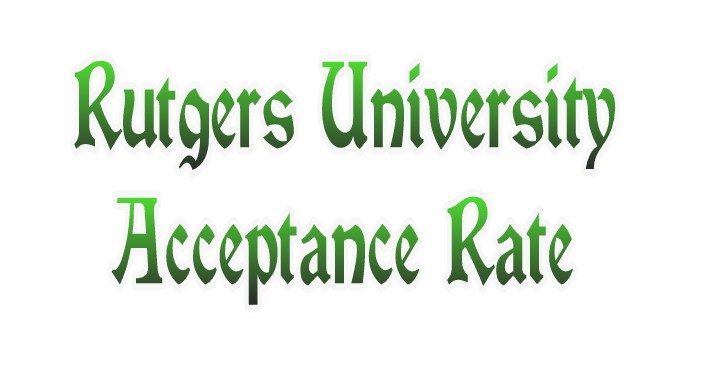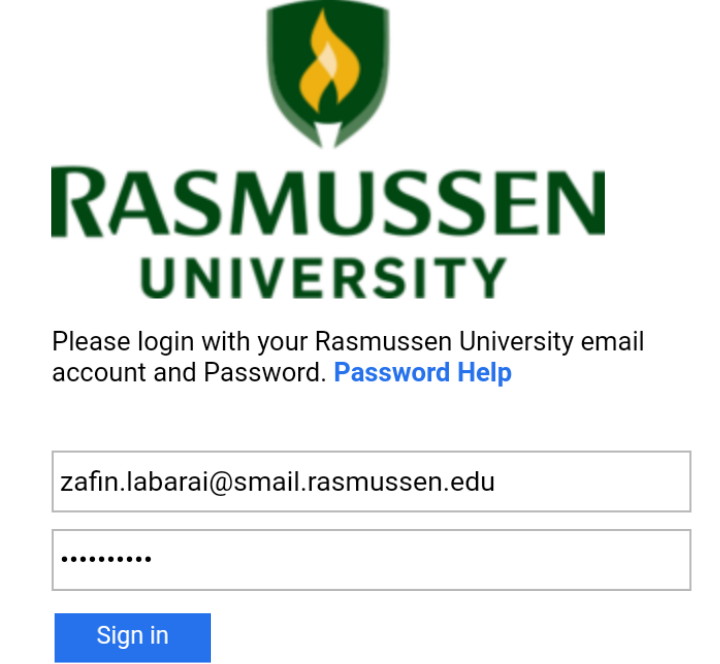
This blog post will provide you with information about the Rutgers Acceptance Rate 2023-2024 Session, with the institution’s admission requirements, GPA requirements, SAT and ACT Scores, and a step-by-step guide on how to apply for admission to the institution.
INTRODUCTION
Rutgers University, commonly referred to as Rutgers, is a renowned public research university located in New Jersey, United States. With a rich history spanning more than 250 years, Rutgers stands as one of the oldest and most esteemed institutions of higher education in the country. The university encompasses three main campuses in New Brunswick, Newark, and Camden, each offering a distinct academic and cultural environment.
As a comprehensive university, Rutgers offers a vast array of undergraduate and graduate programs across various disciplines, including arts and sciences, engineering, business, health sciences, agriculture, and more. The university is committed to providing a transformative educational experience, fostering critical thinking, innovation, and leadership skills among its diverse student body.
Rutgers University boasts a vibrant academic community that is home to world-class faculty who are leading experts in their fields. Through cutting-edge research initiatives, scholarly pursuits, and creative endeavors, Rutgers is at the forefront of advancements in numerous disciplines, making significant contributions to knowledge and addressing societal challenges.
Beyond its academic excellence, Rutgers takes pride in its strong commitment to public service and community engagement. The university actively collaborates with local organizations and partners to address pressing social issues, promote inclusivity, and create positive change within and beyond its campuses.
Rutgers University Admissions
Rutgers University has a competitive and holistic admissions process for prospective students. The university considers various factors when evaluating applications, including academic performance, standardized test scores (such as the SAT or ACT), extracurricular involvement, essays, letters of recommendation, and other personal achievements.
Applicants to Rutgers can choose from several undergraduate campuses, including New Brunswick, Newark, and Camden, and must apply directly to their desired campus. Each campus may have specific requirements and deadlines, so it is essential to review the information provided by the university’s admissions office.
While Rutgers does not have specific cutoffs for GPA or test scores, the average GPA and standardized test scores of admitted students vary by campus and program. It is important for applicants to aim for strong academic performance and prepare diligently for standardized tests to enhance their chances of admission.
Additionally, Rutgers values students who demonstrate a passion for learning, leadership potential, diverse experiences, and a commitment to community service. The application essays and letters of recommendation provide an opportunity for applicants to showcase their unique qualities and experiences.
Rutgers University Programs
Rutgers University offers a wide range of undergraduate and graduate programs across various disciplines. Here is a list of some of the programs available at Rutgers:
- Arts and Sciences
- Business Administration
- Engineering
- Health Sciences
- Social Work
- Education
- Pharmacy
- Nursing
- Criminal Justice
- Public Health
- Environmental Science
- Computer Science
- Fine Arts
- Communications
- Psychology
- Biology
- Political Science
- Mathematics
- History
- English
Note that this is not an exhaustive list, and Rutgers University offers many more programs and areas of study.
What is the Rutgers Acceptance Rate?
The acceptance rate at Rutgers University varied depending on the specific campus and program to which an applicant applied.
For the flagship campus, Rutgers University-New Brunswick, the overall acceptance rate for undergraduate applicants was approximately 60%. However, it’s important to note that acceptance rates can vary significantly by individual schools and colleges within the university. Some programs within Rutgers, particularly those with limited enrollment or higher demand, may have more competitive acceptance rates.
For Rutgers University-Newark and Rutgers University-Camden, the acceptance rates were typically higher than those at Rutgers-New Brunswick. These campuses may offer more accessible admission opportunities.
ALSO SEE: Acceptance Rate Vanderbilt 2023
Rutgers University Admission Requirements
Here are the admission requirements for Rutgers University admission for undergraduate applicants:
- High School Diploma or Equivalent: Applicants must have a high school diploma or its equivalent, such as a GED.
- Completed Application: Prospective students need to submit a completed application through the appropriate admissions portal. Rutgers has separate applications for each of its campuses: Rutgers University-New Brunswick, Rutgers University-Newark, and Rutgers University-Camden.
- Transcripts: Official high school transcripts or records of secondary education must be submitted. These transcripts should reflect the courses taken and grades achieved throughout high school.
- Standardized Test Scores: Rutgers University typically requires applicants to submit standardized test scores, such as the SAT or ACT. However, it’s important to note that Rutgers has transitioned to a test-optional policy starting in the fall 2021 admission cycle, allowing applicants the choice to submit test scores or not.
- Essays: Applicants are often required to submit one or more essays or personal statements that highlight their experiences, goals, and reasons for choosing Rutgers University.
- Letters of Recommendation: Some programs may require one or more letters of recommendation from teachers, counselors, or other individuals who can speak to the applicant’s abilities and potential.
- Application Fee: There is an application fee that needs to be paid when submitting the application, although fee waivers may be available for eligible students.
Rutgers University GPA Requirements
Rutgers University has varying GPA requirements depending on the specific campus, program, and level of study. Here Rutgers University of GPA expectations for undergraduate admissions:
Rutgers University-New Brunswick: The average GPA of admitted students at Rutgers-New Brunswick can vary by school and program. Generally, competitive applicants have a strong academic record with a high school GPA ranging from 3.5 to 4.0 on a 4.0 scale.
Rutgers University-Newark and Rutgers University-Camden: These campuses typically have slightly lower GPA expectations compared to Rutgers-New Brunswick. However, it is still important for applicants to have a solid academic record, typically with a high school GPA of 3.0 or above.
How to Apply for Admission to Rutgers University
Here are the steps on how to apply for admission to Rutgers University:
- Visit the Rutgers University Admissions website to access the application portal: https://admissions.rutgers.edu/.
- Create an account: Click on the “Apply” button on the website and follow the prompts to create an account. You will need a valid email address to complete this step.
- Select the appropriate application: Choose the application that corresponds to the campus you wish to apply to, either (Rutgers University-New Brunswick, Rutgers University-Newark, or Rutgers University-Camden).
- Complete the application: Fill out the application with accurate and up-to-date information, including personal details, academic history, and intended major or program of study.
- Submit required documents: Upload or provide the necessary documents, such as official transcripts, test scores, essays, and letters of recommendation, as specified by the application requirements.
- Pay the application fee: Submit the required application fee through the online portal. Fee waivers may be available for eligible students.
- Review and submit your application: Carefully review all the information you have provided and make any necessary edits or corrections. Once you are satisfied with your application, submit it through the online portal.
- Track your application: After submission, you will receive a confirmation email with instructions on how to access your applicant status portal. Use this portal to track the status of your application and receive updates.
FREQUENTLY ASKED QUESTIONS
This section is designed to provide answers to frequently asked questions you have about the Rutgers University Acceptance Rate 2023:
What is the Rutgers University acceptance rate at?
The acceptance rate at Rutgers University can vary depending on the campus and program. However, the overall acceptance rate for undergraduate applicants is typically around 60% at Rutgers University-New Brunswick.
Is Rutgers University a selective school?
Yes, Rutgers University is considered a selective institution. While the acceptance rate is not extremely low, the university receives a large number of applications, making the admissions process competitive.
What is the acceptance rate at Rutgers University-Newark and Rutgers University-Camden?
Generally, the acceptance rates at Rutgers University-Newark and Rutgers University-Camden are slightly higher compared to Rutgers University-New Brunswick. However, acceptance rates can still vary depending on the specific program and applicant pool.
Does Rutgers University have a high acceptance rate for in-state applicants?
Rutgers University does give preference to in-state applicants, and the acceptance rate for New Jersey residents may be slightly higher compared to out-of-state applicants. However, admission decisions are based on various factors, and the acceptance rate can still be competitive for both in-state and out-of-state applicants.
Are there specific acceptance rate requirements for different majors at Rutgers University?
While there may not be specific acceptance rate requirements for different majors, certain programs within Rutgers University may have more competitive acceptance rates due to limited enrollment or high demand. It is important to research and understand the admission requirements for your desired major.
Has the acceptance rate at Rutgers University changed in recent years?
Acceptance rates can fluctuate from year to year due to various factors, including the number of applications received and the university’s enrollment goals. It is advisable to check the most recent data available from Rutgers University or their official admissions website for the most accurate and up-to-date acceptance rate information.
Are there any specific GPA or test score requirements for admission to Rutgers University?
Rutgers University does not have specific cutoffs for GPA or test scores. While a strong academic record is important, the university takes a holistic approach to admissions, considering multiple factors such as essays, letters of recommendation, extracurricular activities, and personal achievements.
Does applying early increase my chances of acceptance at Rutgers University?
Rutgers University offers early action and regular decision options for undergraduate applicants. Applying early can demonstrate your strong interest in the university, but it does not guarantee admission. Admissions decisions are based on a comprehensive evaluation of each applicant’s qualifications.
Are there any factors that can impact the acceptance rate at Rutgers University?
The acceptance rate at Rutgers University can be influenced by several factors, including the number of applicants, the quality of applications received, available space in specific programs, and university enrollment goals. It is important to remember that the acceptance rate can vary from year to year.
Conclusion
In conclusion, the acceptance rate at Rutgers University can vary depending on the specific campus, program, and applicant pool. While the overall acceptance rate for undergraduate applicants is typically around 60% at Rutgers University-New Brunswick, it’s important to note that acceptance rates can differ for Rutgers University-Newark and Rutgers University-Camden. Additionally, specific programs within each campus may have more competitive acceptance rates due to limited enrollment or high demand. It’s crucial to research and understand the admission requirements for your desired program and consider other factors beyond acceptance rates, such as GPA, standardized test scores, essays, and extracurricular involvement. Keep in mind that admissions decisions at Rutgers University are made holistically, considering multiple aspects of an applicant’s profile.





